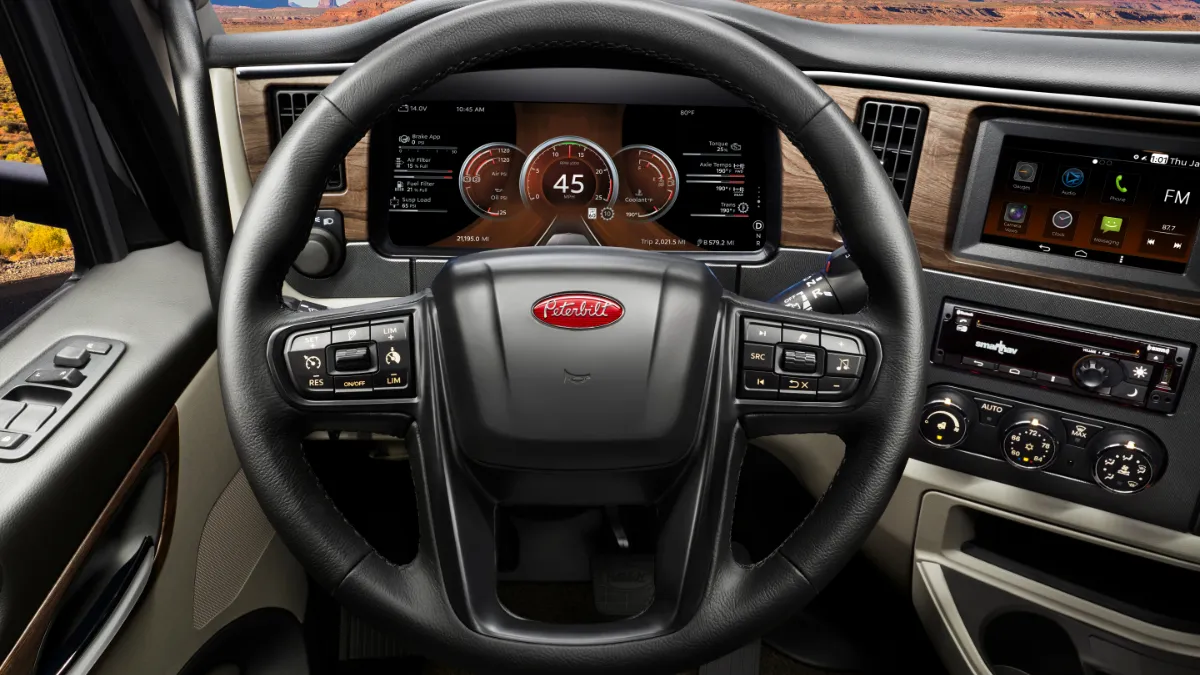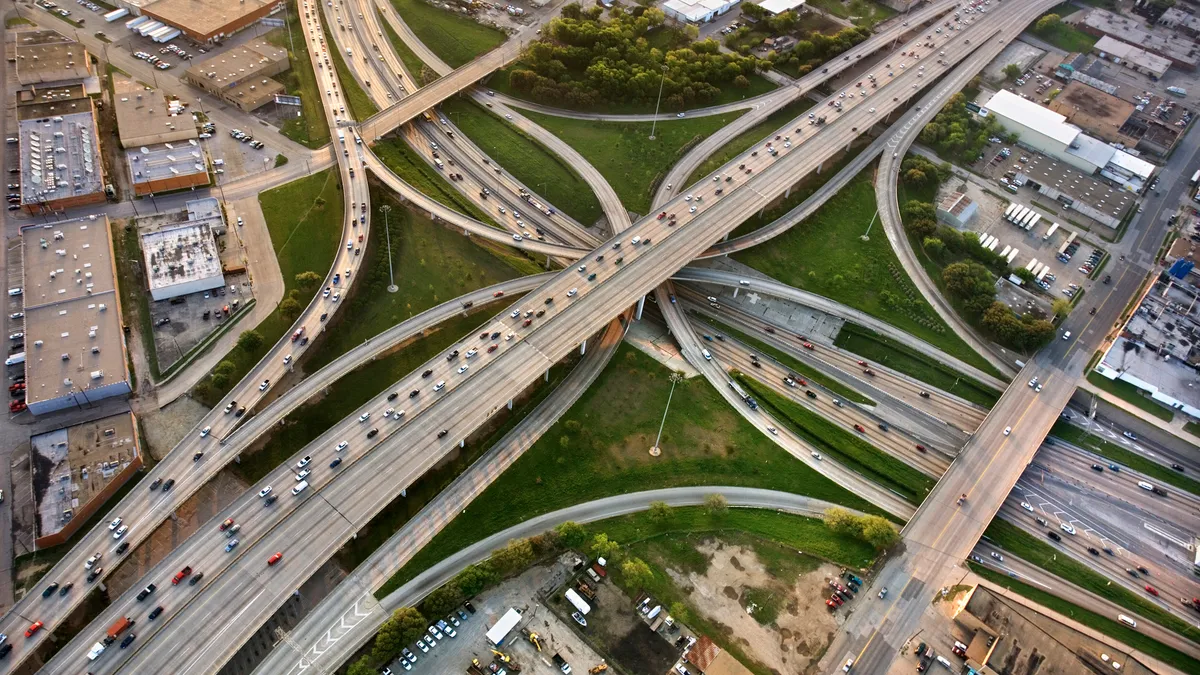Dive Brief:
- "Good freight tonnage, high truck utilization and a shortage of drivers has created strong demand" for Paccar trucks, CEO Preston Feight said on the company's earnings call Tuesday. "Our customers are doing well. The economy is doing well," he said.
- Order intake is strong; 42% of Q1 orders were for Kenworth and Peterbilt in North America, Feight said. And Paccar delivered 3% more trucks during Q1 than the previous quarter, despite the shortage of semiconductors.
- The chip shortage will hamper the market in 2021, Feight said. But he estimated the U.S. and Canada Class 8 market would be in the range of 260,000 to 290,000 trucks, which is 10,000 units greater than the projection he gave in January.
Dive Insight:
The global shortage of semiconductors is slowing production for Class 5-8 trucks, just as trucking firms need more tractors. FTR Vice President of Commercial Vehicles Don Ake said this month that one tractor can require up to 35 chips.
In Volvo's earnings call Friday, CEO Martin Lundstedt said its trucks business was one of its segments most affected by the semiconductor shortage. In a March announcement, the OEM warned the situation would "have substantial impact" on volumes in Q2.
Feight said Paccar aims to get its semiconductor supply back on track in Q2. "As that stabilizes, we'll see builds increase," he said, though supply will likely remain tight. Paccar executives said they believe the OEM is at the front of the line to start taking deliveries, when they begin to pick up.
"Where Paccar has done really well is that we ... already gave a very reliable future outlook of our needs to our supply base," CFO Harrie Schippers said. "So, that also means ... when things start to recover, that we will get priority in those deliveries. That's what we're assuming."
Truck production below 2019 levels
In the meantime, Paccar is forging ahead on investments in new projects, including enhancements on production and distribution facilities, next-generation truck models, zero-emissions and ultra-clean diesel powertrains, advanced driver assistance and autonomous driving systems, and connected-vehicle services, according to Schippers.
Peterbilt and Kenworth are on track to deliver their first production battery-electric vehicles in the coming months, Feight said. Paccar has strategic partnerships with CATL and Romeo Power for batteries, but EV batteries are another component with a supply chain struggling to keep up.
The issue is scaling battery cells: The consumer-electronics industry, which has traditionally been the biggest buyer of cells, requires significantly fewer per product than does the automotive industry. Tesla is taking production into its own hands, as well as leaning on its current base of suppliers.
An analyst from Cowen asked Paccar if would consider taking another look at its M&A strategy, considering the OEM's interest in technology. So far, Paccar has used partnerships, such is the case with EV batteries.
"We look at all options. We don’t have a single strategy. And we just take the best approach that we think is going to provide the best returns for our customers and bring the right technologies to bear with the right economies of scale on a global level," Feight said, in response.









